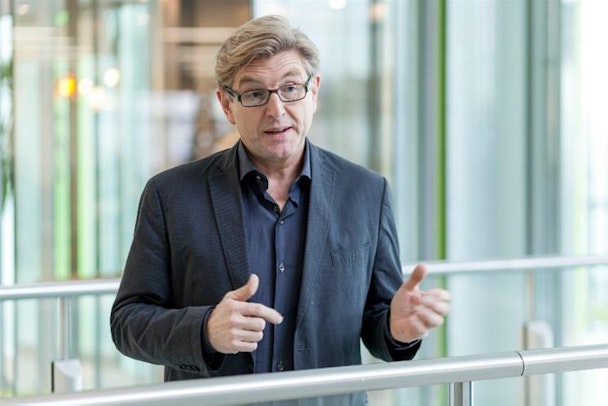Unilever CMO Keith Weed’s parting wisdom to agency bosses: ‘integrate to show your value'
Outgoing Unilever chief marketing officer Keith Weed has offered some parting wisdom to holding groups: get your agencies to collaborate or brands will find value elsewhere.

Weed said when he walked through the doors of Unilever in 1983, agency-brand meetings were all about creative
Speaking to The Drum, Weed reiterated his call from earlier this year that complex holding company structures must continue to evolve to meet client needs and said its experiments with an alternative model were making "good progress".
“When I speak to Mark Read at WPP, John Wren at Omnicom or Michael Roth at IPG, I tell them they need to do more within these holding companies to integrate the offer,” Weed said.
"I [tell them], ‘in integrating the offer we have value coming to you. If you just keep all your agencies separate, I can pick and choose from you as much as I can pick and choose from the whole market’."
As the exec prepares to step down in May after close to four decades at the helm of the Dove owner to pursue new opportunities, he’s already testing a model that does just that.
Unilever has asked two of the different holding companies it works with to pool talent together into single teams working under the umbrella of their retrospective networks (in other words, rival networks aren't sitting at the same table but competing agencies are).
Unilever's test is running at the same time as a similar initiative from P&G which goes a step further by bringing rivals from competing networks together.
Despite relaying concerns in June that there was a challenge in bringing a different set of egos and P&Ls under one roof, even if they represented the same network, Weed gave an update on the experiment, saying it was making “good progress”.
“I don't want to yet declare victory but certainly we're on the path to victory,” he mused, saying he was appreciative of the agencies who had taken part and “brought together resources in a way that does put all the right people around the table and integrate the offer."
He added: “It's exciting, if anything it makes me feel nostalgic for the olden days. It's back to the future in a positive way.”
Weed's comments also come amid ongoing consolidation in the holding group space with Read's WPP officially bringing together a slew of P&Ls to better serve clients over the past six months. So far, this has included VML and Y&R (now VMLY&R) and Wunderman and JWT (AKA Wunderman Thompson). Speculation is now swirling that another significant merger will be revealed at WPP's shareholder gathering later this week.
Unilever has already slashed the number of agencies it works with as part of a cost-cutting exercise which has helped to deliver savings to the tune of $2bn.
'Stop optimising by media, start optimising by brand
Weed’s call for less agency silos echoes a previous appeal to partners to reinvent themselves in order to help modern marketers overcome the issue of “brand fragmentation”.
With just five months left in the top marketing job it’s still something he’s focused on – but for Weed it’s not just about bringing agencies closer together. There’s also the issue of deeper integration between media and creative and which should come first.
Weed said that when he walked through the doors of Unilever in 1983, agency-brand meetings were all about creative, then “someone would come in on media” for a short discussion.
“It would be on one or two pages of A4 and the talk would be about is it burst or is it drip? That was it.”
TV, print, cinema and radio were discussed in the same meeting, he added, with planning tacked on to the creative discussion.
“Now,” he went on, “a media plan is a complete tomb of all sorts of complex things. It’s brilliant because you can do lots of different things, but it’s really challenging for a marketer.
“Today, marketers have a mobile agency saying: 'if you don't do it this way you won't be 100% great on mobile', then they have a social agency saying: 'if you don't do it this way you won't be 110% great on social'.
“Frankly, I'd be very happy to be 90% great on social, 95% great on mobile if I was 110% great for the brand. What we've had is a level of fragmentation that's happening on brands and the biggest challenge for advertisers right now is integration, to get that consistent voice and feel across different media.”
Explaining how this fed into his point about telling agency bosses to break down barriers, Weed was firm that it was time to stop optimising by media and start optimising by brand.
“The marketer back then was helped because the agency – the agency, not 12 agencies – would integrate it and bring the experts to you.”
Within its own walls, Unilever has responded to this challenge by building a series of digital hubs in 28 of its biggest markets so it can better understand its own data and activate in real-time.
With the end goal of achieving one-to-one personalised marketing at scale, Weed said this year has marked a "significant turning point" for the business in edging closer to it.
Keith Weed has been nominated for the World Federation of Advertisers' global marketer of the year award. You can vote for him, and the other finalists, on the WFA website.

